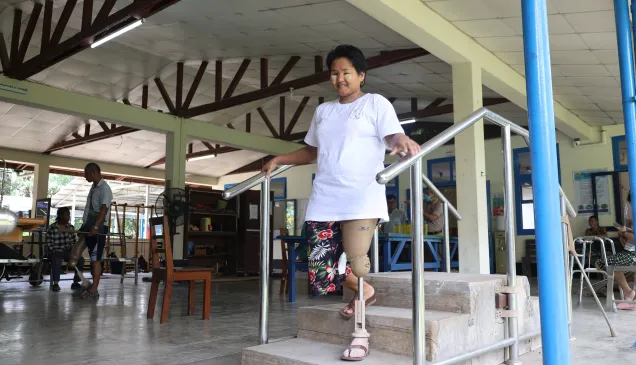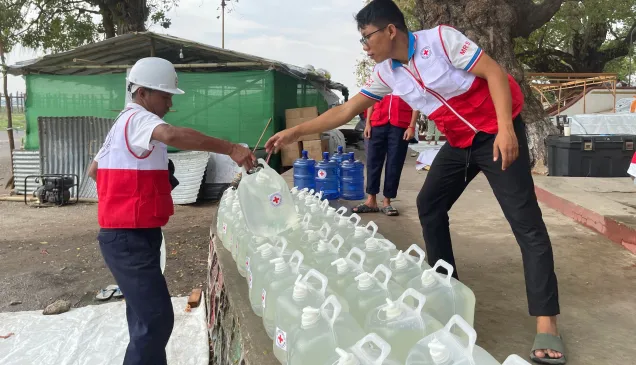Myanmar: ICRC raises awareness as rainy season poses higher risk of explosive devices
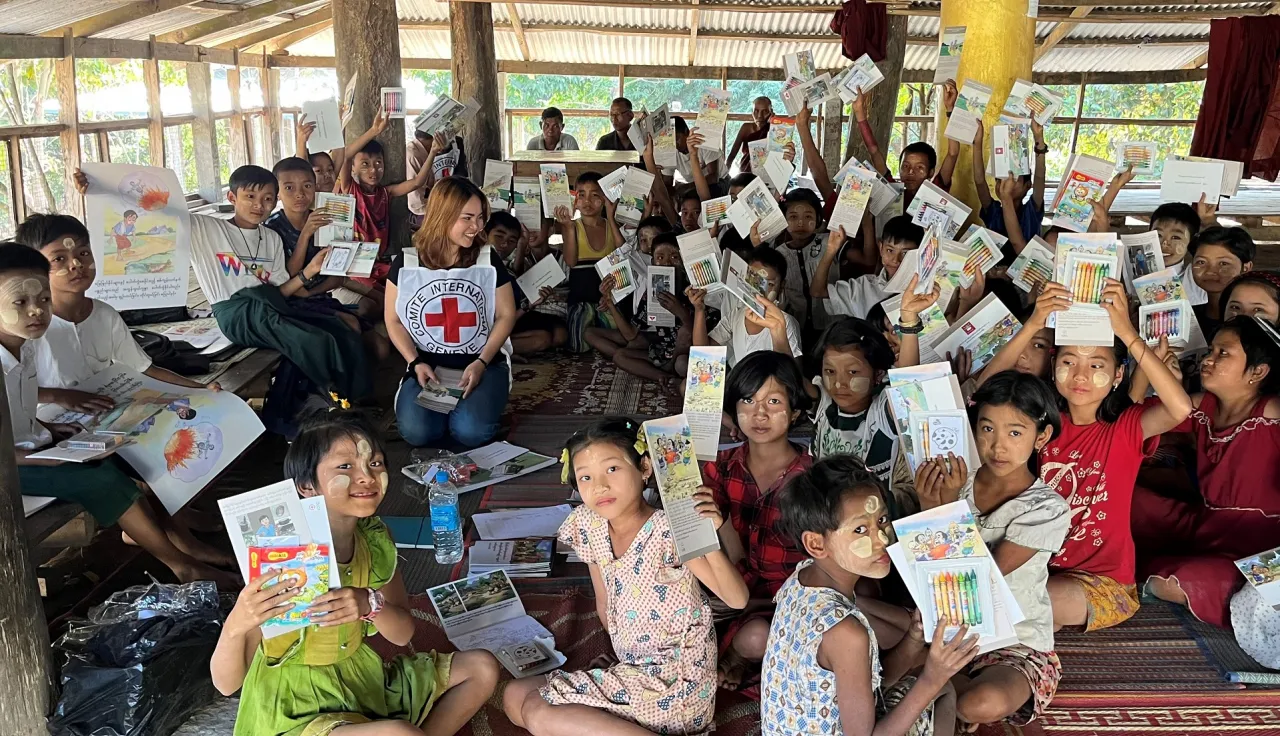
During the first six months of 2023, the International Committee of the Red Cross (ICRC) conducted 102 awareness sessions in Rakhine State, reaching out to 3,000 people and providing them with information on the risks of explosive hazards and safe behaviour.
Myanmar is prone to severe weather conditions during the rainy season, which can increase the vulnerability of communities residing in conflict-affected areas as they face a higher risk of exposure to explosive hazards. Explosive devices get washed to different locations amid heavy rain, flooding and landslides.
In May of this year, Cyclone Mocha hit the western part of Myanmar, causing severe damage in the central and northern parts of Rakhine State. "The communities need to be on constant alert since the cyclone as explosive devices may have become uncovered or shifted to unexpected places," said Hla Maung Thein, Weapon Contamination Field Officer from ICRC's Sittwe subdelegation.
To mitigate the risks associated with explosive devices, the ICRC team in Rakhine has been conducting sessions on Risk Awareness and Safer Behaviour (RASB) in villages and sites for displaced people in Ponnagyun, Kyauktaw, Mrauk Oo, Myaung Bway and Rathedaung townships.
We are currently carrying out risk awareness sessions together with the Myanmar Red Cross Society (MRCS). We are also planning to work with civil society organizations that can access rural areas with high contamination. We will build their capacity and provide them with ongoing support.
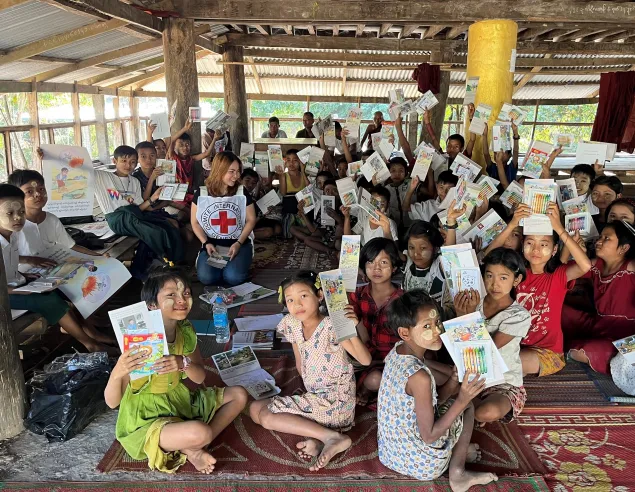
Children learn about the risk of unexploded ordnance at an awareness session in Mrauk-U Township.
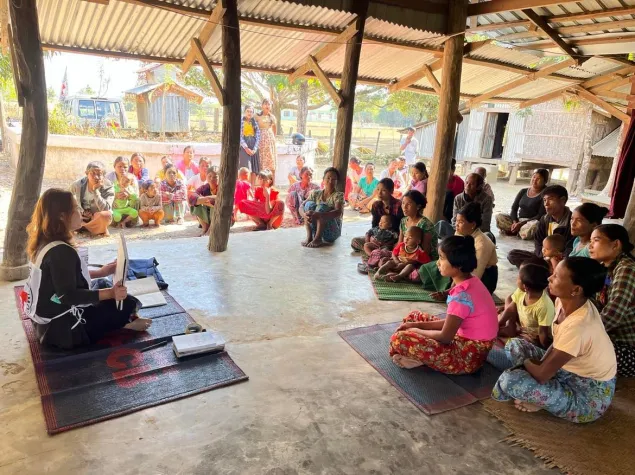
Women and children of the community attend a Risk Awareness and Safer Behaviour session in Mrauk-U Township.
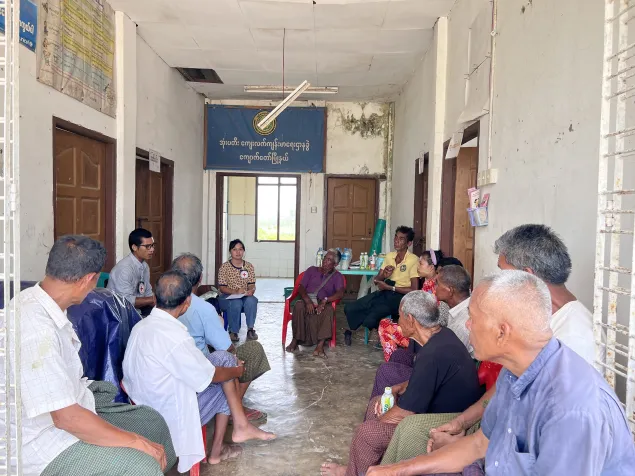
Community members attend an awareness session at a sub-rural health centre in Kyauktaw Township.
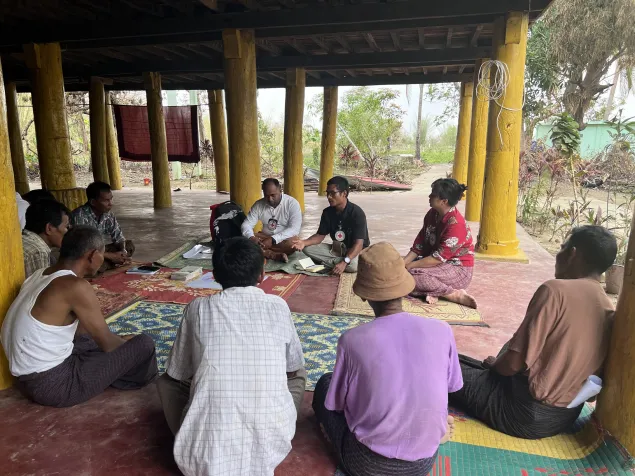
An awareness session in Kyauktaw Township to help villagers understand safe behaviour.
From January to June 2023, 30 community volunteers and 57 Red Cross volunteers were trained as trainers to raise awareness of risk and promote safer behaviour. In addition, we organized 535 awareness sessions across Myanmar, reaching over 21,800 people.
"I am grateful for your frequent visits, reminding us of the risks posed by the explosive devices. I also shared this information with other villagers and those who venture into the nearby mountains," said one of the village leaders.
The ICRC is concerned that explosive hazards continue to impact the lives of many communities across Myanmar. Explosive devices remain active for decades, even after fighting has finished or moved locations. We believe that information can save lives and that our risk awareness sessions will help communities develop better life-saving practices. To reach those most in need, it is vital that a space for humanitarian action is preserved in Myanmar.


